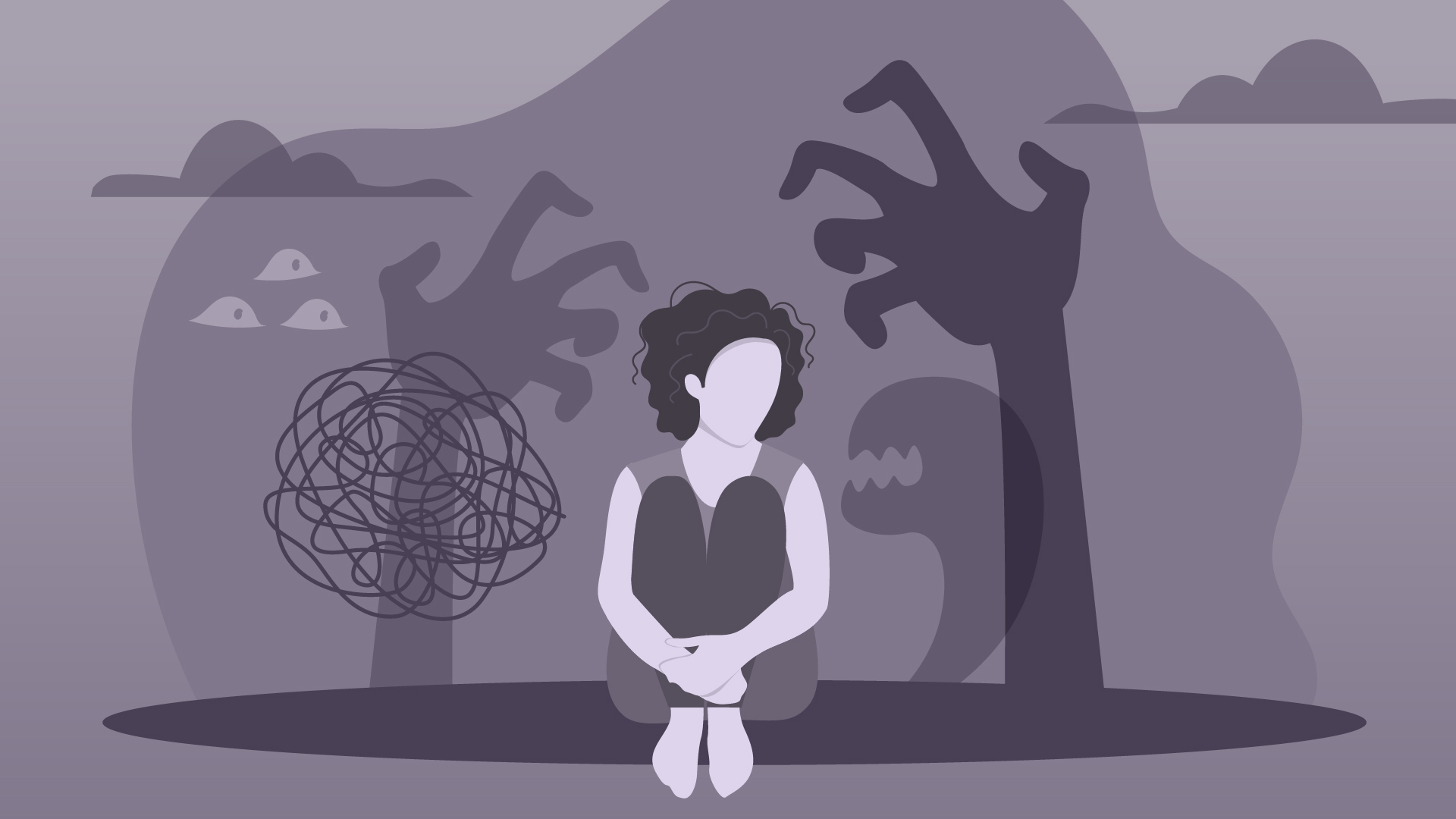In the hours leading up to my first magic mushroom experience, I was overwhelmed with conflicting thoughts. On the one hand, I was exhilarated by friends’ tales of wandering the woods in a state of psychedelic wonder and oneness. But on the other hand, there was also a sense of trepidation. Urban legends of people who have hit the mushies hard and never been the same again played over in my mind and made me wonder whether I should rethink the trip I’d planned. (I went ahead with it, but ended up microdosing.)
For a long time, hearsay, anecdotes, and your friend’s cousin’s brother were the go-to sources for magic mushroom information. Nowadays, psilocybin is making its way into high-profile clinical drug trials, and scientists are investigating its therapeutic versatility in treating various mental health conditions, like depression and PTSD. As a result, we have more access to a diversity of reliable data on this psychedelic compound and its effects.
But for many of us, an unnerving question remains: Is there even the slightest chance that psilocybin can make you go crazy?
Psilocybin, psilocin, and short-term psychosis
When a person consumes magic mushrooms, the main compound in them—psilocybin—is quickly converted by the body into psilocin, its active form. Psilocin is responsible for the psychedelic effects of shrooms and plays a major role in the trip that unfolds. However, in the same way that cannabis is composed of thousands of compounds, magic mushrooms contain a host of active compounds that may also shape and contribute to the psychedelic experience.
Although magic mushroom journeys are unique for everyone, they often share typical features. Those who consume a standard or medium dose of magic mushrooms (about 1.75 grams) often find that the effects kick in after 30-60 minutes; peak effects occur around the 1- to 2-hour mark; and the trip lasts from four to six hours, with a lingering afterglow in the hours or days that follow.
During the journey, users can experience mood swings and intense emotions, mystical experiences, a warped sense of time, ego dissolution (a loss of one’s sense of self), confused thoughts, hallucinations, and delusions.
However, delusions, hallucinations, and disorganized or confused thinking or speaking are also hallmark characteristics of psychosis and schizophrenia.
Psychosis is a term that describes when an individual has lost contact with reality and is experiencing difficulty understanding what is real and what isn’t. Psychosis can be a symptom of a mental illness, such as schizophrenia or bipolar disorder (during depression and/or mania), but it can also be caused by sleep deprivation, an injury, a traumatic experience, certain prescription medications, or hallucinogenic substances—like psilocybin.
In addition to hallucinations, delusions, and confused thinking, other symptoms of psychosis can include intense new ideas, strange feelings or no feelings at all, paranoid ideas, or difficulty concentrating.
Related
What are psychedelic mushrooms and psilocybin?
It’s important to understand that, in general, psychosis is considered a symptom, not a mental health condition (unlike schizophrenia). The duration of a psychotic episode depends on the cause. An episode that may be triggered by a substance, for example, typically has a short duration, lasting only while the substance is active in the person’s body. Psychotic episodes linked to a mental health condition such as schizophrenia, however, can last for days, months, or even longer.
The parallels between the symptoms of psychosis, schizophrenia, and psilocybin journeys are well-known. Psilocybin has been used in clinical research to model psychosis, and the experiences that typically arise during a magic mushroom trip can look like a form of temporary psychosis.
“In some individuals, psilocybin can trigger short-term psychotic episodes during a trip,” explained Dr. Sam Zand, psychiatrist and Chief Medical Officer at Better U. Zand points out that although short-term psychosis may arise during a psilocybin trip and can feel frightening, it isn’t necessarily harmful.
“[It’s scary] because it involves losing touch with reality, which can be disorienting and distressing,” said Zand. “Additionally, the effects of psilocybin can include intense and confusing thoughts, feelings, and perceptions, which can also contribute to feelings of fear or anxiety. The unpredictability of the experience can also add to the fear, as the individual may not know what to expect and may feel out of control.”
However, Zand emphasizes that it’s vital to remember that the effects of psilocybin are temporary, and they typically subside as the trip wears off.
Related
How to dose psychedelic mushrooms
Can short-term psychosis be beneficial?
Although psilocybin can bring on challenging or frightening experiences, those experiences may in fact yield unique benefits.
“Individuals may have beneficial therapeutic effects despite a negative experience during the psilocybin experience,” explained Dr. Robert Alexander, Chief Medical Officer at Reunion Neuroscience. “However, it may be hard to keep one’s perspective when experiencing frightening illusions, the loss of ego boundaries or intense emotions.”
In one survey of almost 2,000 psilocybin mushroom users, researchers found that a psychologically difficult trip positively and significantly correlated to an experience of enhanced personal meaning, spiritual significance, and increased life satisfaction. In addition, 84% of participants believed that they had benefited from their challenging experience.
Other research stresses similar findings, with most participants reflecting that unpleasant experiences during bad trips had ultimately been beneficial, yielding deep existential and life-altering insights. Some psychedelic experts strongly believe that a temporary state of psychosis may enable the emergence of new perceptions and more flexible, creative ways of thinking.
One researcher refers to psychosis as a double-edged sword: While the experience can feel immensely challenging, it may also be healing and life-changing. In this way, a temporary experience of psychosis during a psilocybin trip isn’t necessarily something to be avoided or feared.
Related
How long do magic mushrooms stay in your system?
Can psilocybin trigger long-term psychosis or schizophrenia, or exacerbate existing conditions?
Several 2022 systematic reviews have outlined the safety of psilocybin. The first, a review of studies investigating the use of psilocybin for psychiatric disorders, reported that there had been no significant adverse clinical events from psilocybin to date, and no verifiable recorded deaths. The second, a review of clinical studies exploring the therapeutic potential of psilocybin, found that psilocybin had a positive benefit-risk balance in the treatment of mental disorders and few serious adverse events reported.
Dr. Alexander emphasizes that although short-term psychotic episodes can occur during a psilocybin trip, prolonged psychosis that persists for a day or longer is extremely rare. There are, however, several case studies that suggest that the compound could potentially (temporarily) worsen existing cases of schizophrenia or detrimentally affect individuals with existing mental health conditions.
In the first of these case studies, the individual had a history of schizophrenia and experienced severe mood swings, hallucinations, and delusions after consuming a handful of psilocybin mushrooms with cannabis twice daily. He was given an antipsychotic, and his symptoms improved over two weeks.
In another case, a man with a 10-year history of paranoid schizophrenia experienced mood swings, hallucinations, paranoia, and compulsive thoughts after taking psilocybin mushrooms for an unspecified amount of time. However, his symptoms disappeared within days with no pharmacological treatment.
While a few other cases exist, the limited data and confounding variables (such as the co-use of cannabis in the first case study) mean that it’s difficult to draw a definitive conclusion about the role psilocybin played in these episodes.
Nonetheless, both Alexander and Zand recommend that people with current psychosis symptoms or a prior history of psychosis or schizophrenia may be at a higher risk of adverse effects and should therefore avoid psilocybin.
“The importance of caution and consulting with a mental health professional before using any psychoactive substance cannot be stressed enough, especially for those with a history of mental health concerns,” said Zand.
It’s also crucial to consider whether psilocybin could detrimentally affect an individual with a family history or genetic predisposition toward schizophrenia or psychosis. Currently, there’s insufficient data, so many researchers and clinicians adopt a cautious approach and generally exclude people at high risk from participating in psychedelic therapy.
“It’s unclear whether a positive family history of psychosis should be exclusionary [for taking psilocybin],” explained Dr. Alexander. “The concern is that the psychedelic could precipitate psychosis; there have been anecdotal reports of this happening with recreational LSD use, although it appears to be extremely rare in a therapeutic setting.”
Related
Psychedelic medicine: The benefits of psychedelics
Tips for tripping with magic mushrooms
Drs. Alexander and Zand both emphasize that factors such as dosage, mindset, and setting can influence whether an individual experiences temporary psychosis during a psilocybin trip or not, and the subsequent nature of the experience.
Surveys suggest that the frequency of challenging experiences rises as the psilocybin dose increases. While this doesn’t mean higher doses should necessarily be avoided, it’s something to be aware of for those experimenting with psilocybin. Generally, a microdose is unlikely to kick off hallucinations, while a heroic dose will likely have you seeing, feeling, and hearing things that physically aren’t there.
“Dosage can play a significant role in the likelihood of experiencing psychosis,” explained Zand. “Higher doses of psilocybin can increase the risk of adverse effects, including short-term psychotic episodes. It’s important to follow proper dosing guidelines and start with low doses, especially for individuals who are new to psilocybin.”
Having the right mindset and setting are other critical factors that can profoundly influence a psilocybin trip’s twists, turns, and ultimate outcome. In this context, mindset means approaching a psilocybin journey with an open, relaxed, and curious state of mind; setting means undertaking the journey in a comfortable and safe place, ideally with someone experienced holding space with you. This way, if you experience hallucinations or other uncomfortable feelings, they will be more manageable.
According to Zand, “The importance of preparation, including setting a clear intention, creating a safe and supportive environment, and engaging in breathwork practices, cannot be overstated in reducing the risk of adverse effects and enhancing the therapeutic potential of the experience.”
By submitting this form, you will be subscribed to news and promotional emails from Leafly and you agree to Leafly’s Terms of Service and Privacy Policy. You can unsubscribe from Leafly email messages anytime.




































